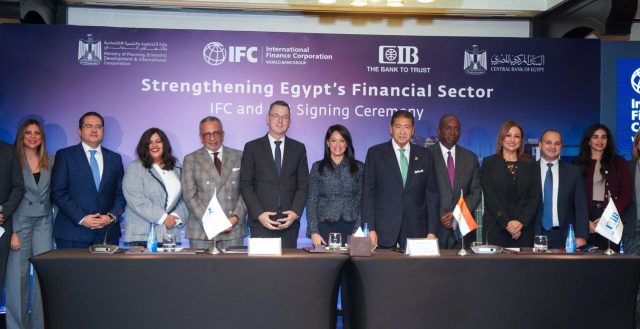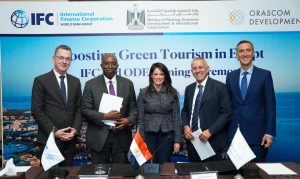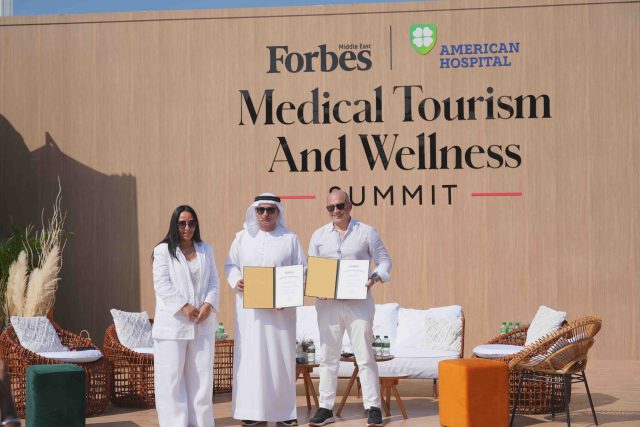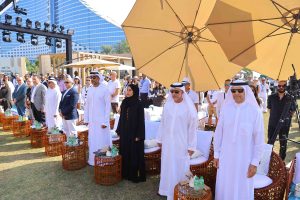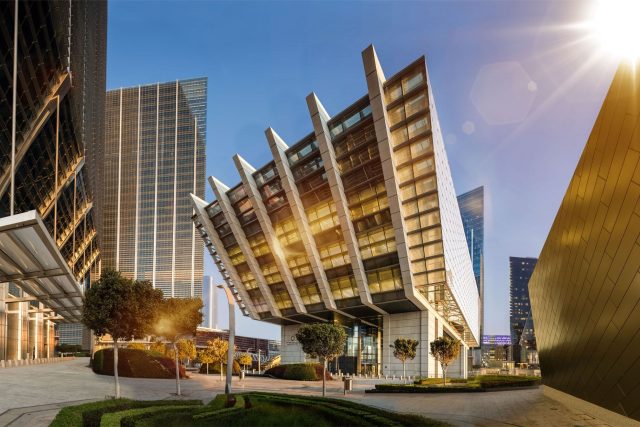Qalaa Holdings, a leader in energy and infrastructure (CCAP.CA on the Egyptian Exchange), released today its consolidated financial results for the three- and six-month periods ending 30 June 2024. During the quarter, Qalaa achieved a revenue of EGP 38.2 billion, a 64% y-o-y increase, mainly driven by ERC’s USD-denominated revenue, and further boosted by broad-based growth across the Group’s subsidiaries. On the profitability front, the Group’s EBITDA reached EGP 5.6 billion, a 43% y-o-y rise on the back of EBITDA growth across all subsidiaries. However, the Group’s net loss expanded by 255% y-o-y to EGP 1.4 billion during the quarter as a result of an increase in non-operating expenses, including revaluation of Allied Corp and TAQA Arabia shares, as well as legal costs associated with the restructuring and settlement of bank debt.
ERC’s 2Q24 EBITDA reached EGP 4.7 billion, up 29% y-o-y. Enhanced operating profitability during the quarter was mainly a result of the EGP devaluation. ASEC Holdings’ EBITDA stood at EGP 441.9 million during the quarter, an 860% y-o-y increase driven by strong operating profitability across all subsidiaries.
Dina Farms Holding Company’s EBITDA rose by 154% y-o-y to EGP 259.4 million in 2Q24 following improved margins across the board. ASCOM achieved an EBITDA of EGP 158.7 million, an 80% y-o-y increase supported by strong operating profitability at ACCM and ASCOM Mining.
EBITDA at CCTO’s transportation and logistics business grew by 30% y-o-y to EGP 114.3 million, largely driven by the solid increases in coal storage and stevedoring revenues at NRPMC. Finally, TAQA Arabia’s EBITDA rose by 37% y-o-y to EGP 419.6 million in 2Q24. EBITDA growth for the period came mostly on the back of strong performances at TAQA Gas and TAQA Power. Additionally, increases in fuel and lube prices and volumes at TAQA Petroleum further supported growth. TAQA Arabia is accounted for as an investment in associate using the equity method and revenues are not included in Qalaa’s consolidated revenues.
Qalaa recorded a consolidated net loss after minority interest of EGP 1.4 billion in 2Q24, compared to a net loss of EGP 381.2 million reported in 2Q23. Bottom-line losses were mainly a consequence of increased non-operating expenses witnessed during the quarter at the holding level.
Notwithstanding the above, all of Qalaa’s subsidiaries apart from ASEC Holding and ASCOM recorded net profits during the quarter. ERC recorded a net profit of EGP 558.0 million during the quarter, a 42% y-o-y increase mainly a result of the EGP devaluation. ASEC Holding reported a net loss of EGP 135.6 million in 2Q24, down 67% y-o-y from the net loss of EGP 387.2 million recorded during the same period last year. Bottom-line results were mainly driven by FX losses associated with USD-denominated liabilities at Al-Takamol Cement.
Dina Farms Holding Company achieved a net profit of EGP 111.8 million in 2Q24, up 116% y-o-y on the back of improved operations across all business segments at Dina Farms, in addition to the herd revaluation, as well as the recovery of gross margins at ICDP. In 2Q24, ASCOM recorded a net loss of EGP 73.0 million, compared to a net profit of EGP 0.9 million achieved in 2Q23. The company’s bottom-line performance was largely a consequence of the substantial net loss reported at ASCOM Mining on the back of a one-off loss related to the revaluation of Allied Corp shares during the quarter.
CCTO’s transportation and logistics business delivered a net income of EGP 35.6 million in 2Q24, down 9% y-o-y. The decline in bottom-line profitability was mainly due to higher interest expense incurred during the quarter associated with USD dominated dues to Qalaa as the majority shareholder. Finally, TAQA Arabia’s net profit increased by 38% y-o-y to EGP 167.3 million in 2Q24. Bottom-line growth for the quarter was primarily driven by a strong performance at TAQA Gas. Positive contributions from foreign currency-linked power generation prices and the implementation of new photovoltaic projects under TAQA Power, in addition to increases in fuel and lube prices and volumes at TAQA Petroleum, further supported growth. TAQA Arabia is accounted for as an investment in associate using the equity method and revenues are not included in Qalaa’s consolidated revenues.
“I am pleased with Qalaa’s results over the past quarter, which continue to showcase our strength and resilience in the face of a highly difficult operating environment,” said Qalaa Holdings Chairman and Founder Ahmed Heikal. “During the quarter, Qalaa’s top-line expanded strongly by 64% y-o-y, mainly driven by the solid results achieved at the Egyptian Refining Company, and further supported by broad-based growth across all subsidiaries. Additionally, EBITDA rose by 43% y-o-y to EGP 5.6 billion during the quarter, with EBITDA expansion reported across all subsidiaries. Despite the net loss recorded in 2Q24 as a result of increased costs and one-off non-operational expenses incurred during the quarter at the holding company level, our solid operational results are a testament to the Group’s strength and resilience, and reflect the success of our meticulous growth-oriented strategies.”
“Across the board, our portfolio companies have continued to demonstrate their strength and resilience, with all our business segments reporting revenue growth during the quarter. Supported by Qalaa’s carefully executed growth-oriented strategies, our portfolio companies continue to successfully capitalize on the new macroeconomic dynamics in play, leveraging a portfolio structure that shields against devaluation pressures, and reinforced by an increased focus on local manufacturing and import substitution,” Heikal continued.
“Qalaa’s resilient performance during the quarter comes in the midst of challenging economic conditions both domestically and regionally. On the domestic front, inflation and interest rates remain elevated, impacting consumer spending levels and businesses’ ability to obtain financing. Meanwhile, the global macroeconomic uncertainty, coupled with the various armed conflicts taking place around the world are further exacerbating the difficulties faced in the domestic market. However, as evidenced by our results over the past quarter, Qalaa continues to be well-positioned to overcome these challenges, thanks to our resilience, flexibility, and efficiency, which are ingrained into our DNA. Additionally, and despite the challenges, Egypt remains an attractive destination for both local and regional investors, and I am confident that the country’s long-term economic outlook remains positive,” Heikal stated.
“After successfully building on a strong start to the year, we will continue pushing ahead with our growth strategies across our various platforms over the coming period, while simultaneously keeping a close eye on potential investment opportunities with the potential to enhance our overall investments portfolio. Looking ahead, I remain confident in my positive outlook for the Group. Our portfolio companies’ cash flows are strong with very low levels of debt, and with growth achieved through efficiencies and small, incremental investments. Additionally, over the past couple of quarters we have taken huge steps in our debt settlement and restructuring strategy, placing Qalaa in a stronger and more favorable financial position,” Heikal noted.
“Finally, I would like to reiterate that the true value of Qalaa’s performing assets is masked due to holding them at their historical cost and, in some cases, adjusting for impairments, while not taking into consideration any revaluation adjustments,” Heikal concluded.
“I am happy with Qalaa’s results over the past quarter, which saw the Group build on a positive start to 2024 and deliver further growth in the midst of a difficult operating environment,” said Hisham El-Khazindar, Qalaa Holdings Co-Founder and Managing Director. “During the second quarter of the year, our results continued to be heavily driven by ERC’s USD-denominated revenue, which expanded strongly year-on-year despite the decline in refining margins witnessed during the quarter. In parallel, Qalaa’s position as an import substitute and export player across our mining business continued to support the Group’s consolidated results, providing valuable USD proceeds during a period of significant exchange rate fluctuations. Meanwhile, our agriculture and logistics segments continued to deliver solid top- and bottom-line results, largely on the back of their robust investment fundamentals. Finally, a strong recovery at Al-Takamol Cement supported our cement segment’s performance during the quarter, which delivered solid year-on-year growth in 2Q24, overturing a trend of top-line contraction witnessed during the past quarters due to the negative impact of the ongoing armed conflict in Sudan on Takamol Cement’s performance.”
“Over the past period, we have finalized our Senior Debt Settlement/Restructuring after successfully fulfilling all Conditions Precedent (CPs), in accordance with the agreements with Egyptian banks and AIB, marking a significant milestone in the company’s financial restructuring process. Additionally, the foreign senior debt purchase by QHRI has been finalized and reflected on Qalaa’s 2Q24 financial statements, with the balance remaining outstanding on Qalaa’s books until the finalization of the Qalaa capital increase, expected before June 2025. Building on those efforts, we remain committed to reducing Qalaa’s risk levels and maintaining a healthy financial position going forward. On that front, ERC remains fully current on all its scheduled debt payments and is on track to fully settle its senior debt by 4Q25, after which the company may start distributing dividends,” added El-Khazindar.
“Our performance during the second quarter of 2024 reflects our resilience in the face of adversity and our proven ability to persevere during difficult times. Looking ahead, I am positive that Qalaa remains well-positioned to continue delivering strong results across our diverse markets and areas of operation,” concluded El-Khazindar.
